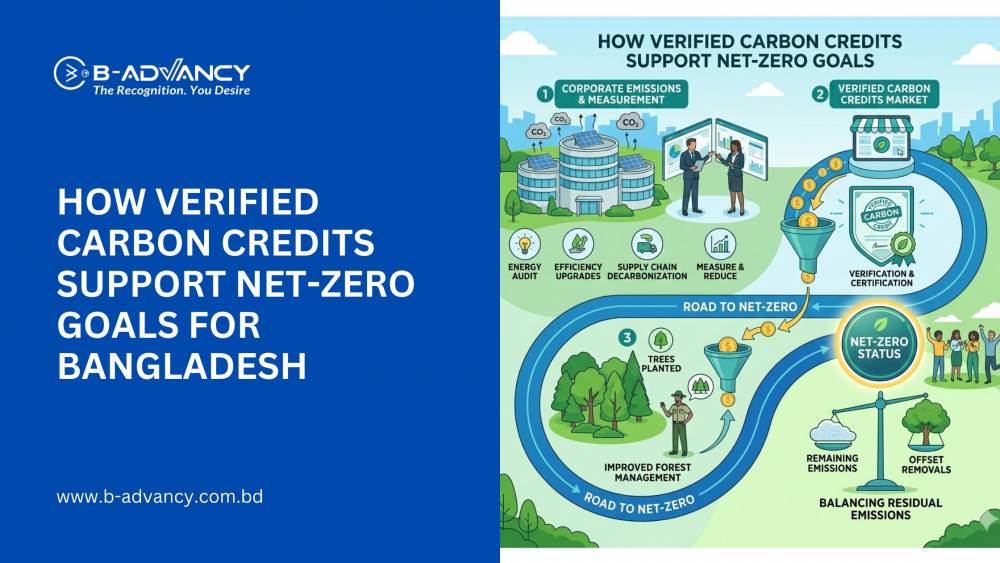Introduction
Sustainability reporting has become an essential aspect of corporate governance worldwide, allowing organizations to disclose their economic, environmental, and social impacts. The Global Reporting Initiative (GRI) Standards offer a structured framework to help businesses report on their sustainability practices transparently and consistently. As Bangladesh continues to grow as an emerging economy, the adoption of GRI Standards has gained momentum among corporations, industries, and regulatory bodies.
This blog explores the significance of GRI Standards in Bangladesh, their components, benefits, and how businesses can effectively implement them to align with global sustainability goals.
Understanding the Global Reporting Initiative (GRI) Standards
The GRI Standards are the world’s most widely adopted framework for sustainability reporting. Developed by the Global Sustainability Standards Board (GSSB), they provide guidelines for organizations to communicate their contributions to sustainable development.
Key Components of the GRI Standards
The GRI Standards are structured into three main categories:
-
Universal Standards (Applicable to all organizations)
-
GRI 1: Foundation 2021 – Establishes the core principles and requirements for sustainability reporting.
-
GRI 2: General Disclosures 2021 – Covers governance, business structure, and stakeholder engagement.
-
GRI 3: Material Topics 2021 – Guides organizations in determining key areas of impact.
-
Sector Standards (Industry-specific reporting guidelines)
-
Topic Standards (Detailed disclosures on specific sustainability topics, such as emissions, labor practices, and human rights)
The Importance of GRI Standards in Bangladesh
With industrialization and globalization, Bangladesh has witnessed growing concerns regarding environmental sustainability, labor rights, and corporate accountability. Implementing GRI Standards can help businesses meet international reporting requirements, enhance transparency, and build investor confidence.
1. Ensuring Compliance with Global and Local Regulations
Many multinational corporations require their suppliers and partners to adhere to sustainability frameworks. GRI reporting helps Bangladeshi companies align with international compliance requirements such as the United Nations Sustainable Development Goals (SDGs), OECD Guidelines, and IFC Performance Standards.
2. Enhancing Corporate Reputation and Competitiveness
Companies that adopt GRI-based reporting demonstrate a commitment to responsible business practices. This improves stakeholder trust, strengthens brand image, and provides a competitive edge in international markets.
3. Supporting Investment and Financial Stability
Sustainability reports based on GRI Standards attract responsible investors who seek long-term, ethical business models. Many financial institutions in Bangladesh are incorporating ESG (Environmental, Social, and Governance) criteria into investment decisions.
4. Addressing Environmental and Social Challenges
Industries such as textiles, agriculture, manufacturing, and energy are significant contributors to Bangladesh’s economy but also pose environmental risks. GRI Standards guide organizations in mitigating negative impacts while improving operational efficiency.
How Businesses in Bangladesh Can Implement GRI Standards
Step 1: Understanding GRI Framework and Identifying Material Topics
Organizations should begin by understanding the GRI structure and identifying the most relevant sustainability issues for their business. Material topics include environmental concerns, labor conditions, supply chain sustainability, and community engagement.
Step 2: Engaging Stakeholders
Stakeholder engagement is crucial for effective sustainability reporting. Companies should involve investors, employees, regulators, customers, and community members to understand their expectations and concerns.
Step 3: Data Collection and Performance Assessment
Accurate and reliable data collection is key to sustainability reporting. Businesses must monitor their environmental footprint, social impact, and governance practices, ensuring consistency with GRI disclosure requirements.
Step 4: Preparing the Sustainability Report
Organizations must structure their reports based on GRI 1, GRI 2, and GRI 3, ensuring compliance with disclosure requirements. Companies should also include case studies and performance highlights to showcase their sustainability initiatives.
Step 5: External Assurance and Continuous Improvement
Independent verification of sustainability reports enhances credibility. Businesses should also update their sustainability strategies continuously to adapt to evolving environmental and social challenges.
Challenges in Adopting GRI Standards in Bangladesh
Despite the benefits, businesses in Bangladesh face certain challenges in adopting GRI Standards:
-
Lack of Awareness: Many organizations are unfamiliar with the importance of sustainability reporting.
-
Limited Technical Expertise: Companies require trained professionals to implement GRI Standards effectively.
-
Resource Constraints: Small and medium-sized enterprises (SMEs) may struggle with the financial and technical aspects of sustainability reporting.
-
Regulatory Gaps: While Bangladesh has environmental and labor laws, integrating sustainability reporting into mandatory compliance frameworks is still evolving.
Overcoming These Challenges
-
Capacity Building: Investing in employee training on sustainability standards.
-
Government and Industry Collaboration: Policymakers should encourage sustainability reporting through incentives and regulations.
-
Technology and Innovation: Using digital tools for sustainability tracking and reporting.
Conclusion
The adoption of Global Reporting Initiative (GRI) Standards in Bangladesh marks a significant step towards corporate sustainability and responsible business practices. By implementing these standards, companies can improve their transparency, attract investors, and contribute to national and global sustainability goals.
As industries in Bangladesh strive to compete on the international stage, embracing GRI-based reporting will not only enhance business performance but also drive positive environmental and social change. Organizations that invest in GRI compliance today will be better positioned for a sustainable future.
For businesses looking to embark on their sustainability journey, GRI Certified Training and expert guidance can be invaluable in navigating the complexities of sustainability reporting.


2.jpg)



































































































































































































